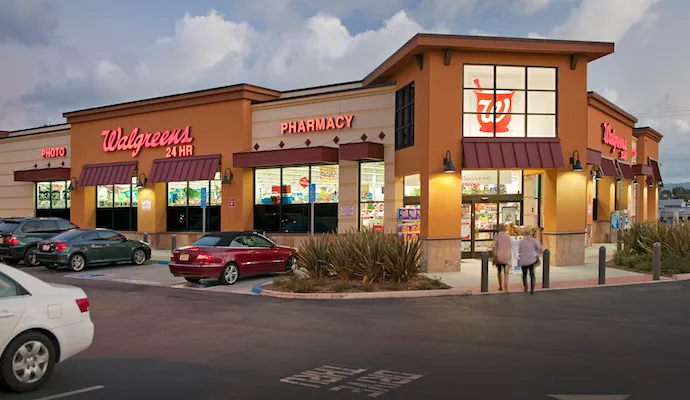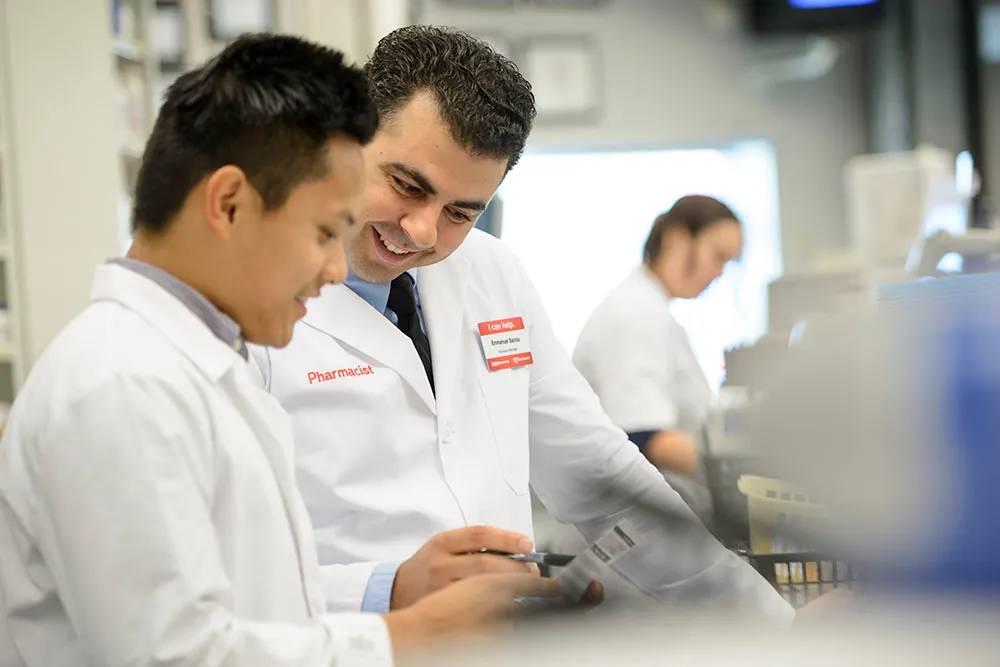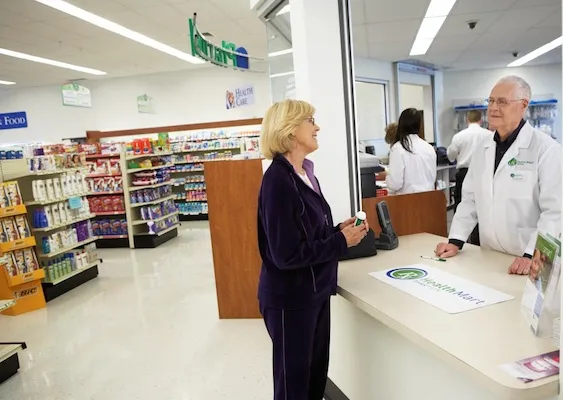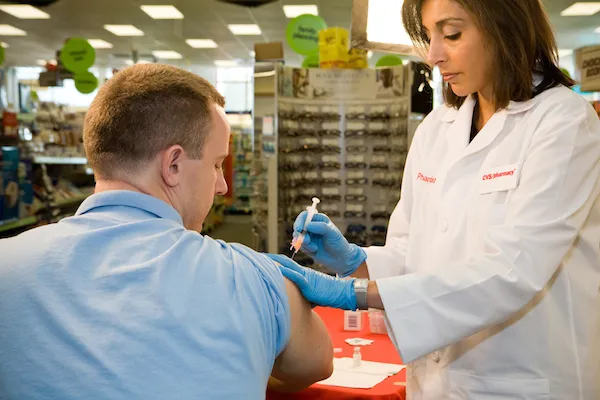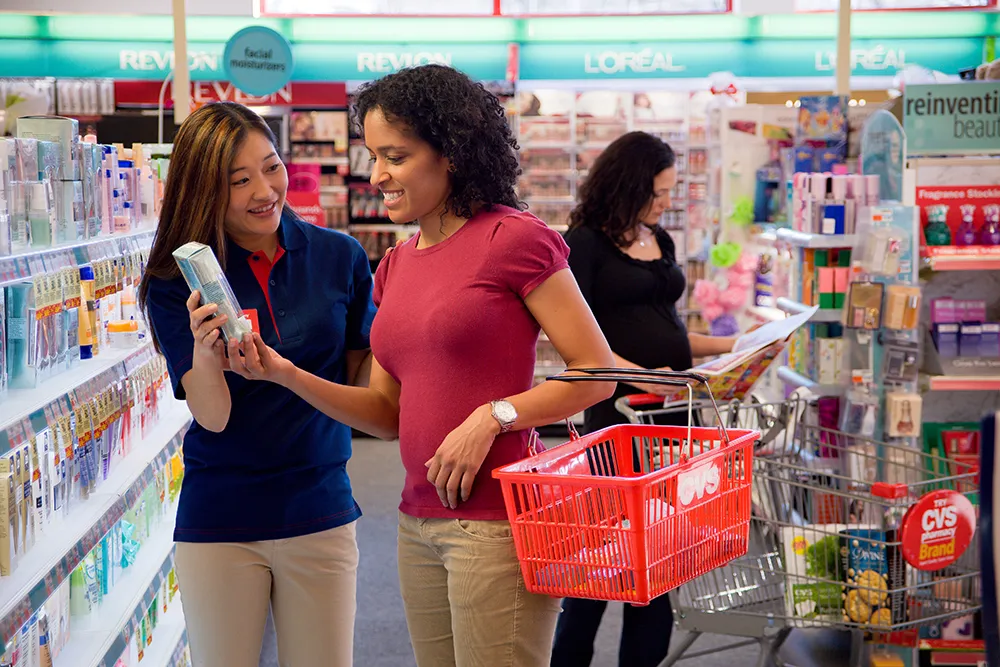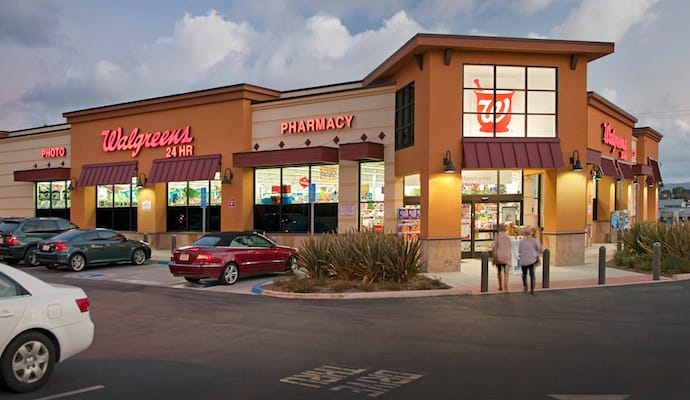
For the better part of a decade, Walgreens Boosts Alliance has been engaged in continually rethinking what a chain drug store means to the consumer, and how the format needs to evolve to remain relevant in an era when digital technology is changing the rules of the game in retailing and health care. That process is now in high gear.
WBA in recent weeks unveiled several new and expanded partnerships that have the potential to alter customers’ expectations about what they’ll find in a Walgreens store. The retailer is building on its alliance with Sprint to bring the communications company’s Sprint Express kiosks to 80 locations in the Chicago and Dallas-Fort Worth markets by the end of the year. The first eight Sprint Express locations, in Gainesville, Fla., are part of a comprehensive pilot program in that market where Walgreens is experimenting with new approaches to pricing, promotions, product selection, strategic collaborations and the overall shopping experience.
Like WBA’s partnership with FedEx, the rollout of which will bring package pickup and drop-off locations to 7,700 stores, the deal with Sprint centers on convenience, a traditional strength of chain drug stores. The retailer’s work with LabCorp aims to enlarge the scope of services that people expect from a retail pharmacy. The two companies agreed in June 2017 to test LabCorp facilities, which provide specimen collection services for LabCorp testing, near the prescription counters in 17 Walgreens stores in Colorado, Florida, Illinois and North Carolina. The program is now being expanded to at least 600 locations across the United States. Broadening the scope of the collaboration is in sync with the industrywide trend toward transforming community pharmacies into true neighborhood health care centers.
A new partnership with Birchbox, an online service that sends subscribers individualized beauty and personal care samples on a monthly basis and operates a complementary e-commerce platform, will give Walgreens’ beauty business a leg up in several ways. The collaboration, which includes WBA taking a minority stake in the online beauty retailer, will give Birchbox a presence on all Walgreens digital platforms and dedicated displays in 11 pilot locations. Most important, the deal will enable Walgreens to achieve the long-standing goal of providing shoppers in its stores in this country access to prestige beauty brands.
“We have made significant progress in the formation and development of partnerships and alliances,” WBA vice chairman and chief executive officer Stefano Pessina told financial analysts during a conference call earlier this month. “This is all part of our strategic initiative to transform our offering, organization and infrastructure to be fit for the future. We believe in true partnerships that share resources, skills and expertise, and either accelerate our own work or bring us capabilities we could not easily or economically develop ourselves.”
Perhaps the most striking example of that strategy is the test Walgreens has undertaken with Kroger Co., the nation’s biggest operator of traditional supermarkets and a driver of retail innovation in its own right. At 13 Walgreens stores in northern Kentucky the two companies will experiment with a new one-stop-shopping concept that features offerings from both chains. Consumers will be able to order groceries from Kroger online and pick them up at the Walgreens locations. The stores involved in the pilot will also carry Kroger private label grocery products.
“The concept brings together our pharmacy, health, beauty and personal care expertise with their extensive skills and resources in general retail and merchandising,” said WBA co-chief operating officer Alex Gourlay during the conference call with analysts. “Kroger’s scale and expertise, combined with our own, can potentially create a truly unique concept in the marketplace. Clearly, this is a very early-stage trial, but this type of initiative could drive a step change in the transformation of our customer offer and our stores overall.”
WBA’s quest to leverage partnerships to better meet the needs of consumers isn’t limited to the United States. The company, which has a presence in more than 25 nations around the world, recently struck a deal with Alibaba Group Holding Ltd. to create a virtual Boots flagship store on Tmall Global. The platform will give the more than 500 million shoppers who use Alibaba’s online services in China access to many of Boots’ beauty brands. The pact with Alibaba follows WBA’s purchase earlier this year of a 40% share in GuoDa, one of the leading Chinese pharmacy chains.
In addition to helping accelerate the transformation of the drug store format, WBA’s strategy is forging a new business model. Pessina promised that many more partnerships are on the way that will benefit the company’s traditional retail and health care offerings, as well as its omnichannel capabilities to “revolutionize the customer experience.”
“We’ve been developing leading-edge thinking and infrastructure as we move much of our business into the digital space,” said Pessina. “This will bring us closer to our customers in their daily lives beyond the physical presence of our stores. It will allow us to focus on our customers more closely and more individually than we have ever done before.
“As we look forward, I believe this is easily one of the biggest transformations our business has ever seen. How we do this and the partners we chose to work with will have a major influence on the future shape of our company. It is of such importance that I’m leading it personally.”
The fact that Pessina is directly involved signifies the importance of the initiative — and the likelihood that it will ultimately be successful.

